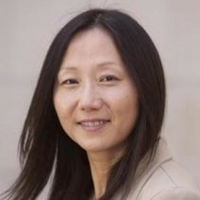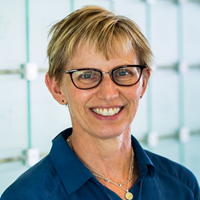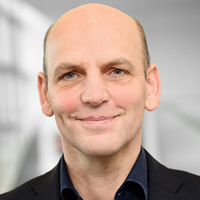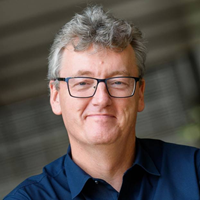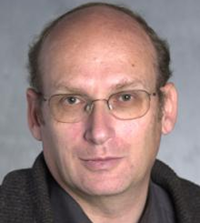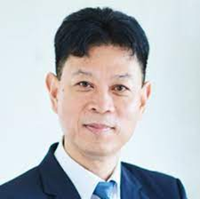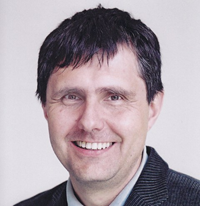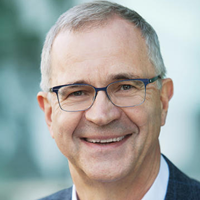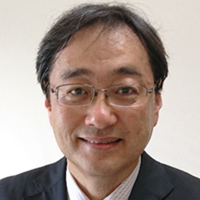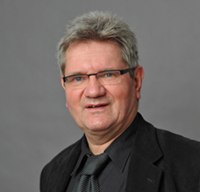2021 CCS Honorary Fellows Announced
After nomination by the Standing Board, Division, and Commission, and selection by the Standing Board, ten internationally-renowned scientists were named Honorary Fellows of the Chinese Chemical Society (CCS) for 2021. The status of Honorary Fellow is the highest honor that the Society bestows upon an individual and is only granted to the most distinguished chemists from around the world who have made significant contributions to the advancement of chemistry, as well as to the development of chemistry in China and the Society. Since 2009, only 70 scientists, including these 10 new 2021 Fellows, have been awarded this honor.
Prof. Zhenan Bao, Stanford University
Prof. Zhenan Bao has long devoted herself to understanding the basic physical and chemical problems of organic field effect transistors. She is internationally recognized as one of the pioneers and leaders in flexible electronics, printed organic electronics and biomimetic organic electronics. Her research provides important principles and methods to guide the development of next-generation flexible electronic technology based on organic optoelectronic materials. Her skin-inspired electronics research has forged new directions for the use of organic electronics.
Prof. Bao serves as Director of the Department of Chemical Engineering and the Flexible Electronics Research Center at Stanford University. She is a member of the US National Academy of Arts and Sciences, the US National Academy of Inventors, and the US National Academy of Engineering. She has made important contributions to promoting and participating in exchanges and cooperation between Chinese universities, research institutes and international academic circles. At the same time, she has also contributed greatly to the cultivation of Chinese talents, the development of disciplines, the development of science and technology education, and the promotion of the development of new industries in China.
Prof. Laura Kiessling, Massachusetts Institute of Technology
Prof. Laura Kiessling is a pioneer in the field of chemical biology, where her research focuses the interaction between cell surface carbohydrates and proteins through organic synthesis and macromolecular chemistry. Her work has revealed details involving cell surface recognition processes for many different biological phenomena and life processes. Her interdisciplinary research has been used in many practical applications, including cancer treatments, and she is well-known for her global leadership and unique approached to understanding the chemical and biological sciences.
Prof. Kiessling is a member of the US National Academy of Sciences. She has frequent exchanges with Chinese academic circles, which has greatly promoted the development of the interdisciplinary field of chemical biology in China, and has also made outstanding contributions to academic exchanges and cooperation between China and the world.
Prof. Dr. Benjamin List, Max Planck Institute for Coal Research
Prof. Dr. Benjamin List is a Nobel Laureate (2021) and internationally-renowned organic chemist who has contributed greatly to research on asymmetric catalysis of small organic molecules. He developed the asymmetric Aldol reaction catalyzed by proline and proposed the concept of catalysis by small organic molecules. He also proposed the concept of asymmetric counter anion catalysis (ACDC), which provided a new direction for the development of asymmetric catalytic reactions and the design of new chiral catalysts. He developed the chiral bissulfonimide catalysis (DSI) system, IDP chiral Brønsted acid catalytic system, and IDPi catalytic system with strong acid and tight chiral environment, etc.
Prof. Dr. List is a member of the German National Academy of Sciences. He has visited China many times to learn about Chinese culture and establish extensive and good academic relations with Chinese scientists. More than ten Chinese students trained in his laboratory are active in academic and business circles in China. Prof. Dr. List, as well as his former students, are making outstanding contributions to the development of organic chemistry in China.
Prof. David MacMillan, Princeton University
Prof. David MacMillan is a Nobel Laureate (2021) who is internationally-known for his work organic chemistry. He has made important and wide-reaching contributions to the basic theory and application of organic synthesis. He has been instrumental in the development of asymmetric organic small molecule and photoredox catalysis, as well as singly occupied molecular orbital (SOMO) activation and metal catalysis, all of which has greatly expanded research progress in many related disciplines.
Prof. David MacMillan is a member of the US National Academy of Sciences and a member of the American Academy of Sciences and Arts. He visited China many times and has fostered good academic relations with Chinese scientists. He has trained Chinese students who are now having a significant impact in domestic research activities. Through his research and mentorship, Prof. MacMillan has made wide-reaching contributions to the development of organic chemistry in China.
Prof. Eli Pollak, Weizmann Institute of Science
Prof. Eli Pollak is a theoretical chemist who is internationally-recognized for his research in theoretical chemical physics. He achieved landmark results in the theory of condensed phase chemical kinetics, and one of his recent academic achievements involved obtaining lower-bound eigenvalues of ground-state quantum systems, which is one of the most important advances in the field over the past 90 years.
Prof. Pollak has made a number of contributions to China's scientific undertakings. He has not only collaborated with many Chinese scholars, but he also presided over cooperative research projects for the China-Israel Science Foundation. He has organized many bilateral academic exchanges between China and Israel, and invited many Chinese delegates to Israel.
Prof. Bao-Lian Su, University of Namur/Wuhan University of Technology
Prof. Bao-Lian Su is an internationally-regarded inorganic material chemistry scientist who founded the research field of hierarchical porous materials and life composite materials and revealed the physical and chemical laws of hierarchical porous material transport. He has made outstanding contributions to the field of materials chemistry and has produced a wide range of international academic influences.
Prof. Su is a tenured professor at the University of Namur, Belgium, a member of the Royal Belgian Academy of Sciences, a member of the European Academy of Sciences, and the chairman of the World Association for Mesoscopic Materials. He was instrumental in bringing the chemical foundation of synthetic chemistry of Chinese graded pore materials and composite life materials to the world stage and has made important contributions to the development of key interfacial catalytic materials for China's petrochemical industry. He has cultivated a group of outstanding chemical talents for China and established a world-renowned international cooperation platform in China. He has played an important role in the promotion of high-level international cooperation and exchanges for chemistry in China.
Prof. Dr. Peter Fratzl, Max Planck Institute for Colloids and Interfaces
Prof. Dr. Peter Fratzl is a well-known international scholar in the field of materials chemistry and biomaterials. He has made many breakthrough innovations at the frontier of intersecting fields, including biology, medicine, materials science, engineering, and the humanities. His research on bone tissue regeneration materials has had a major impact internationally and has been highly praised by counterparts across the globe.
Prof. Dr. Fratzl is the Director of the Max Planck Institute for Colloids and Interfaces, an academician of the German Academy of Science and Engineering, a foreign academician of the Austrian Academy of Sciences, and a foreign academician of the American Academy of Engineering. He has established long-term exchanges and cooperation with domestic scholars and has visited Chinese universities and research institutes for academic visits and discussions. His exchanges with Chinese scholars have greatly expanded the development of the field of materials chemistry in China, and at the same time, enhanced China's international influence in the field of biomineralization and biomimetic materials. He has also trained many outstanding young talents for China in his laboratory.
Prof. Dr. Harald Fuchs, University of Münster
Prof. Dr. Harald Fuchs is an international-known scholar engaged in the research on nanoscale science and technology, including scanning probe microscopy. He initiated research combining self-assembly systems and precision chemical reaction systems with scanning tunneling microscopy, which led to new research directions in surface chemistry and nanotechnology.
Prof. Dr. Fuchs is a member of the German National Academy of Sciences, the German National Academy of Engineering, and the Academy of Sciences for Developing Countries. He is very supportive of the development of chemistry in China and has bid for the first major long-term cooperation project between China and Germany. The "Sino-German Inter-Regional Cooperation Research Center Project", has already promoted exchanges between Germany and China in the field of chemistry, in particular in surface chemistry and nanotechnology. The cooperation has laid the foundation for the establishment of international cooperative laboratories and extensive cooperative research between China and Germany in the future.
Prof. Hiromi Yamashita, Osaka University
Prof. Hiromi Yamashita is an internationally-recognized scientist in the field of surface science and heterogeneous catalysis. His research has led the way in precise design and preparation of single-site micro-mesoporous catalysts, surface plasmon resonance effect synergistically promoting catalytic performance, as well as other related engineering applications, and has greatly promoted the development of disciplines involving environmental and energy catalysis.
Prof. Yamashita is an Academician of the European Academy of Sciences, the Chairman of the Asia-Pacific Catalysis Association, and the Chairman of the Japan Society of Catalysis. He has long been devoted to the academic exchanges between China and Japan in the field of catalysis research, vigorously supported the development of young talents in the field of catalysis research in China, and cultivated many young talents who have returned to work in China.
Prof. Dr. Robert Schlögl, Fritz Haber Institute of the Max Planck Society, Max Planck Institute for Chemical Energy Conversion
Prof. Dr. Robert Schlögl is a world-renowned scholar in the field of catalysis. He is a pioneer in the basic research of heterogeneous catalysis, the development of new catalytic materials, and the development of new catalytic characterization techniques. In particular, he has made invaluable contributions to the in-situ dynamic characterization of important catalytic processes, such as ammonia synthesis, methanol synthesis, and selective oxidation. He has also developed important methods, such as near-atmospheric pressure electron spectroscopy and environmental electron microscopy, which have greatly increased the understanding of heterogeneous catalysis under in-situ dynamic conditions.
Prof. Dr. Schlögl is an academician of the German National Academy of Sciences, the Executive Vice President of the German National Academy of Sciences, the Executive Vice Chairman of the German National Hydrogen Energy Committee, and the former Chairman of the German Catalysis Association. He has long been committed to academic exchanges between China and Germany and between China and Europe in the field of catalysis research. He strongly supports the development of domestic talents in the field of catalysis research and has trained many young talents who have returned to work in China.
Tag: Chinese Chemical Society
Source: https://www.chinesechemsoc.org/do/10.5555/0d90d835-ad34-45af-b063-a89614e66794/full/

